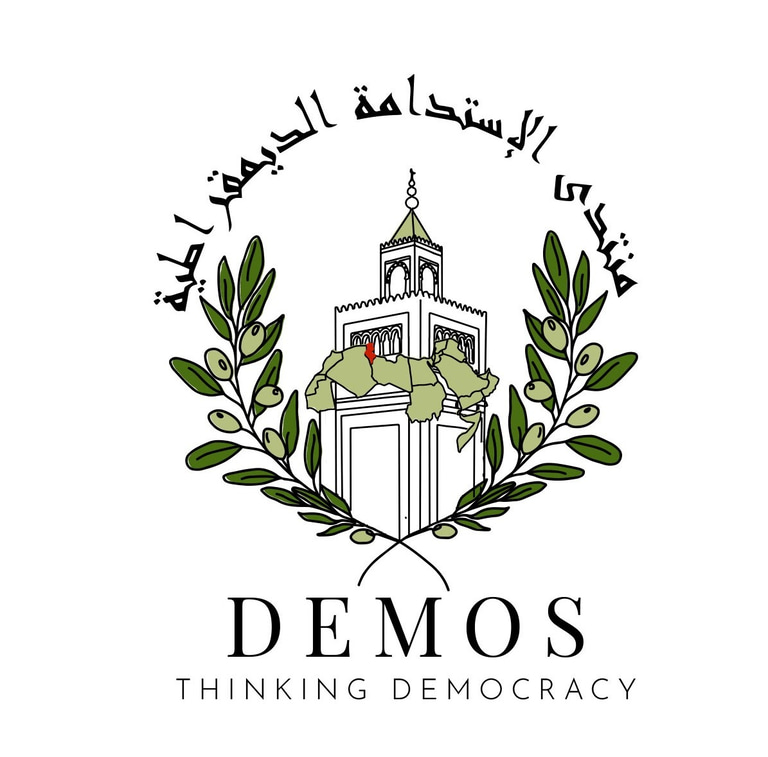

Democracy, particularly what we at Demos Tunisia consider to be sustainable democracy, involves more than simply elections and constitutions and parliaments. It also spans the processes and relations, underlain by civic values, that comprise the wide spectrum of public engagement and political participation. Thinking of democracy as just a one-time event (or even two consecutive free elections, as some scholars suggest), limits the capacity to observe the dynamism inherent in politics and necessary for both research and reform.
By contrast, the emphasis on sustainability takes into account the capacity for democratic functioning and longevity, including recalibration in the face of setbacks, in any given polity. Democratic knowledge in particular concerns the practical adoption and implementation of civic values such as public trust, moderation, inclusion, and compromise.
Paying attention to how society learns civic and democratic attitudes, skills, and behavior is important for in both researchers and policy. For one thing, sustainable democracy, and with it building democratic resilience—the various mechanisms deployed by citizens, political elites, and institutions to confront de-democratization or democratic backsliding—is not the sole responsibility of elected (or appointed) officials.
Nor is democratic resilience confined to formal political processes. The actual sustainability of democracy depends also on the ways in which society "from below," including civil society, political parties, public opinion makers who contribute to political discourse, academics and teachers involved in civic or democratic pedagogy, adopts and practices these values.
One such value is public trust. The huge gaps in public trust, and by extension the imperative to nurture it, is relevant to the entire Arab world, where democratic gains of the Arab Spring have been largely undone over the past several years. At this difficult moment, the significance of public trust to democratic sustainability and democratic resilience cannot be understated.
Defining Public Trust
What is public trust and why is it important? The OECD offers a simple definition of trust, regarding it as "a person's belief that another person or institution will act consistently with their expectation of positive behavior." Narrowing down this broad concept, we can think of public trust as specifically concerning political institutions or actors. That is, public trust extends wider than what is called the social trust between individuals in their private positionalities, for instance family members or friends. Public trust (also called political trust) hence spans attitudes towards formal political institutions (parliaments, executives, courts, the military, elected officials), mediating bodies (political parties, or the non-governmental organizations in civil society), and even international organizations (such as the UN, World Bank, or OECD that conduct studies and construct measurements of this very trust). Because public trust concerns relations and values between people and institutions concerning governance, public welfare, and other kinds of public issues, it is of interest to civil society and political practitioners as well as scholars of democracy and politics more generally. That is why researchers invest significant resources to measure public trust, often through public opinion surveys like the ones carried out by the Arab Barometer.
How Public Trust Enhances Democracy
The more people become involved in public affairs, from volunteering in a charity to advocacy in a human rights or democracy NGO to voting in elections to running for office, the more they are likely to trust public actors and institutions. And vice versa. In other words, "trust and citizen engagement are part of a mutually reinforcing dynamic,” according to the World Bank. In decades of scholarship, researchers have shown that public trust in the institutions of a democracy enhance their functioning and encourage civic engagement by citizenry.
This kind of reinforcing relationship is a mechanism by which democratic systems are considered to operate better not just in the political, but also in the economic realms: in the institutions of political and economic governance. Democracy works to the extent that citizens participate because they see the system as working for them: in public services, in the degree to which politicians and parties represent them, in their economic well-being and quality of life.
This not to say that public trust operates identically between authoritarian and democratic regimes. There are layers to public trust: it can be directed by citizens towards state institutions or political leaders, or the domain of formal politics. Perhaps equally relevant, especially in settings where political regimes are not (sufficiently) democratic, is the public trust that can be directed at forces that may (at least at times) play an anti-authoritarian role, including political parties or civil society. However, in authoritarian regimes (or de-democratizing ones) public trust may be more significant among and between civil society and broader society. Pressure on the state (for democratization, for development needs, for security) is more likely to come from civil society actors, some organized (NGOs and parties) and some not (street protestors).
Such bottom-up opposition and political pressure was exemplified in the Arab Spring uprisings and revolutions against corrupt, repressive authoritarian leaders from Morocco and Tunisia to Bahrain and Yemen. Uneven spurts of protest activity since 2011, including against pre-2021 governments in Tunisia or against electricity shortages in Iraq in 2019, confirm this trend of societal forces, as demanders and perhaps drivers of political change. In authoritarian settings where democratic reform comes from opposition to existing regimes and their policies, public trust can facilitate the civic engagement of actors within civil society, in their work with one another.
In addition, public trust can improve enhance the credibility of civil society actors with wider society. Therefore, in situations of de-democratization, increasing public trust towards workers’ unions or legal activists or human rights defenders can help counteract setbacks to improve the civic inputs of these informal political actors as they advocate for political change.
Confronting De-democratization
Nearly 15 years after the Arab Spring brought unprecedented prospects for democratization in the region, the pattern of creeping autocratization has rendered political regimes more authoritarian than they were before 2011. Today, de-democratization is an easily observable political phenomenon in the region, as it is around the world. In these challenging times, countless civil society actors, journalists and writers, academics and governance specialists are grappling with how to jump-start political reform that improves people’s daily lives, as free and equal citizens in societies where dignity and justice prevail.
Keeping an eye on public trust is an actionable angle for democracy promoters within society, politics, and academia. Working to enhance public trust towards and between actors and institutions in civil and political society is one of many imperatives for re-igniting democratic sustainability in the Arab world.
